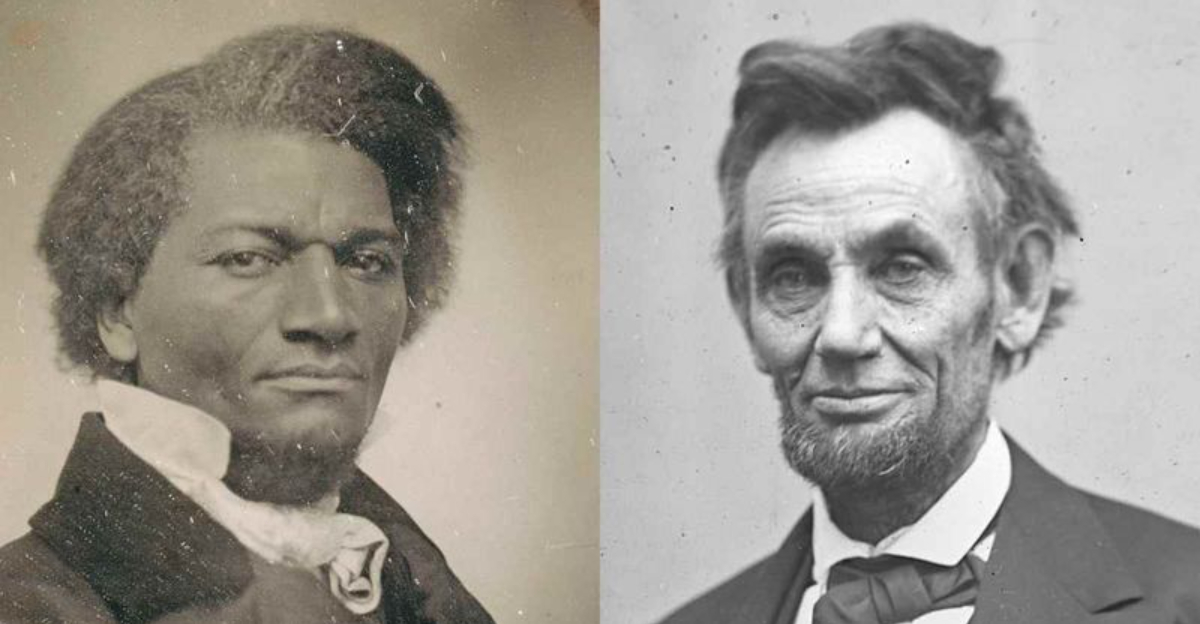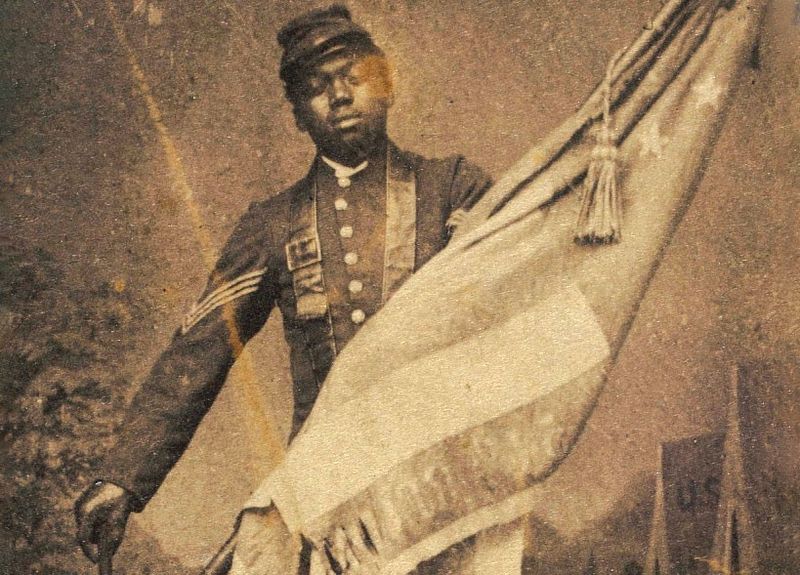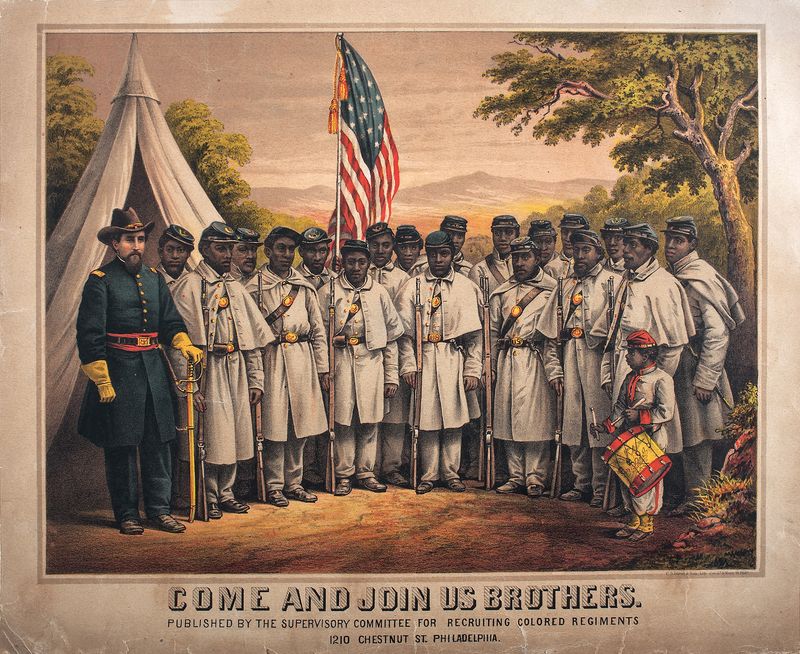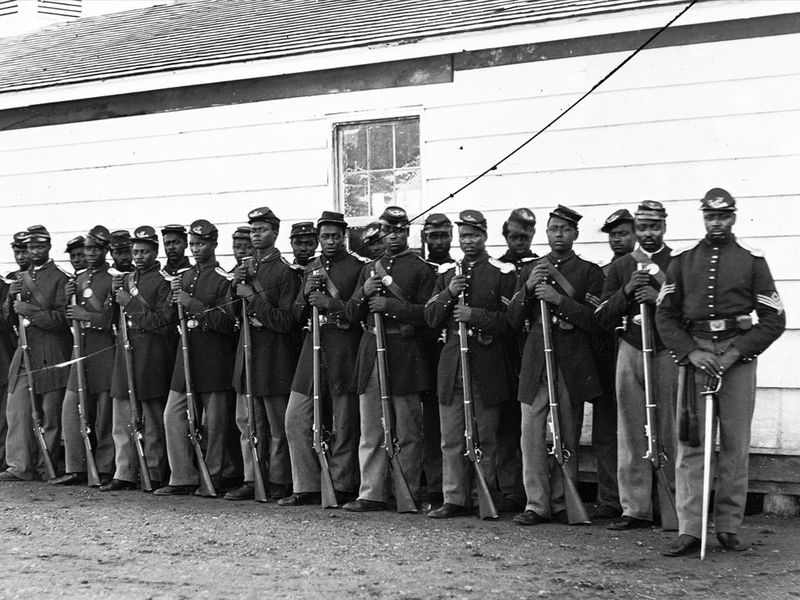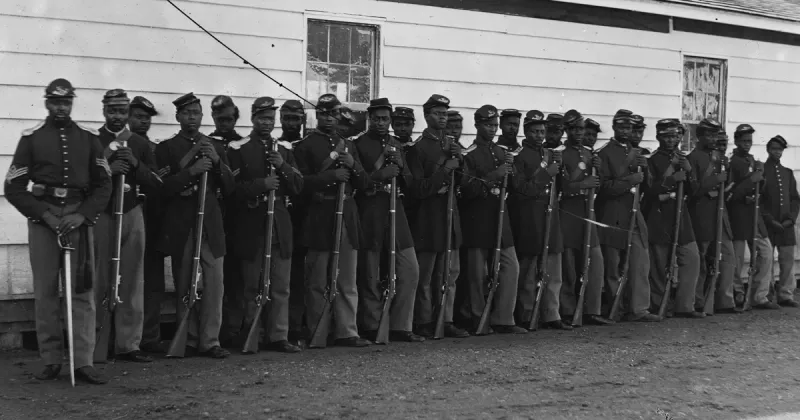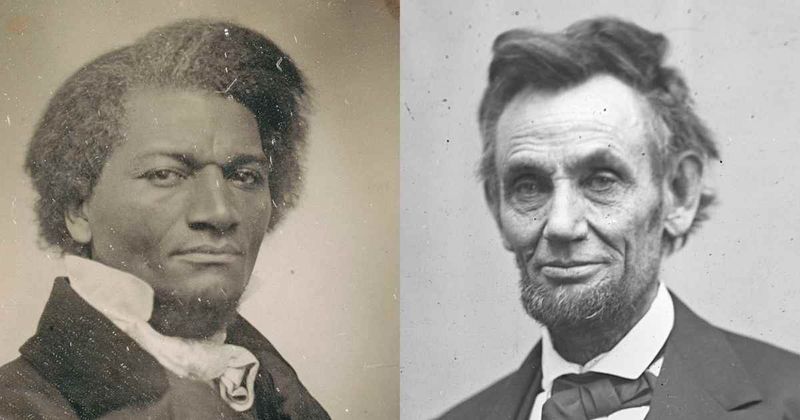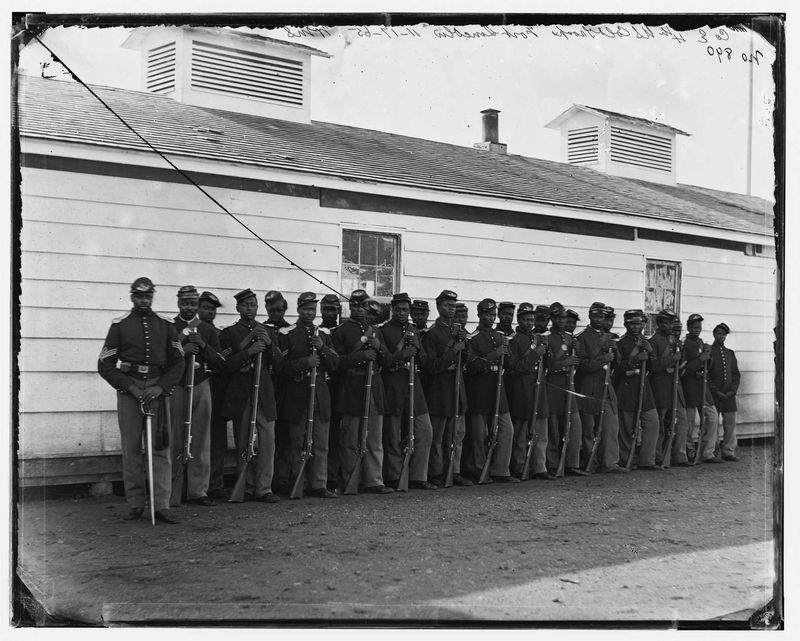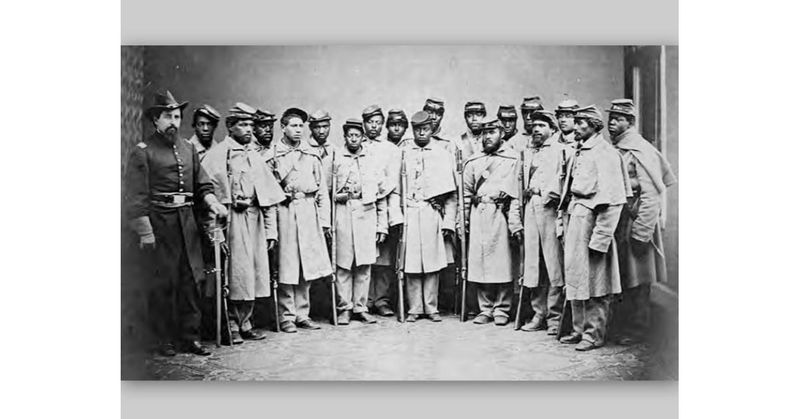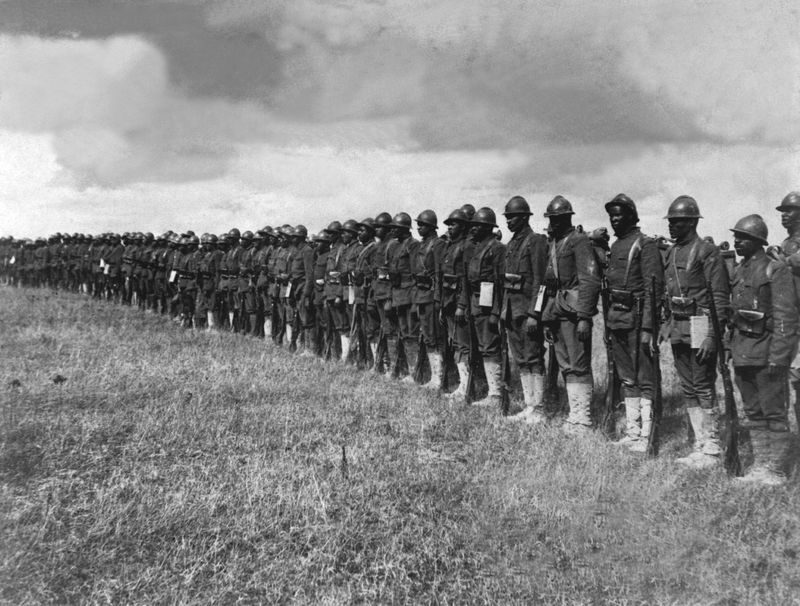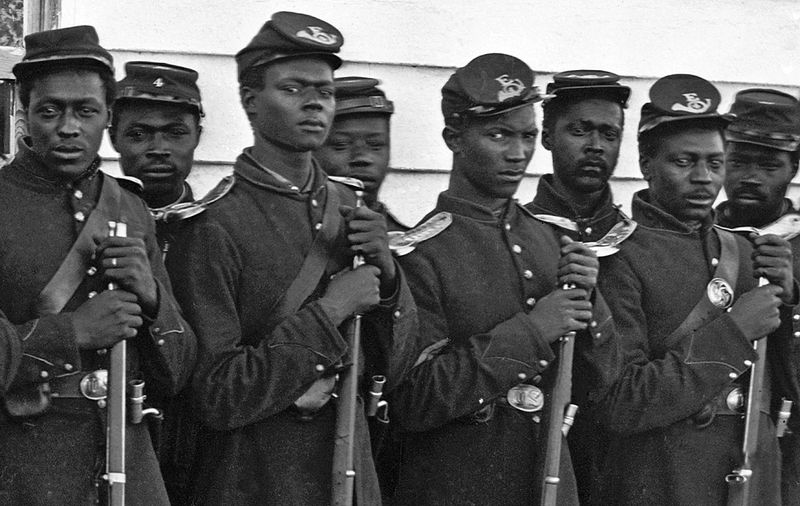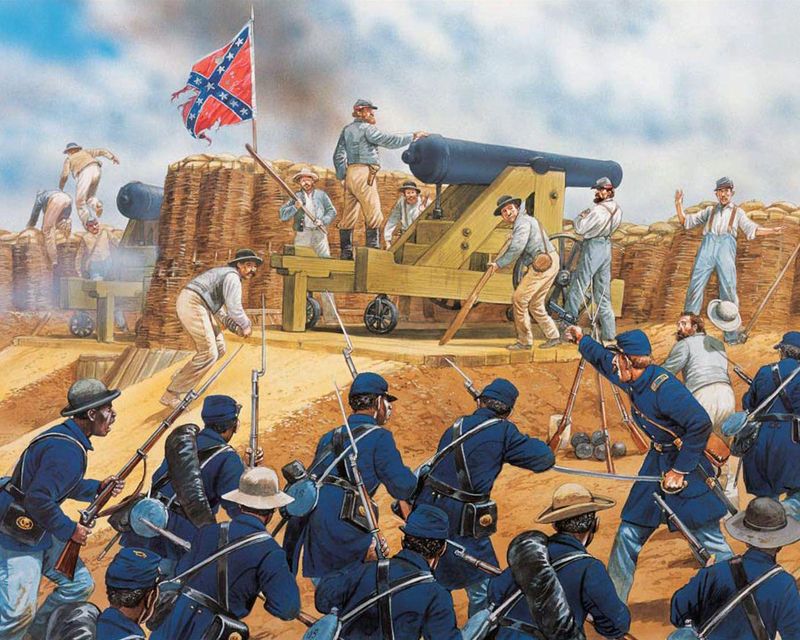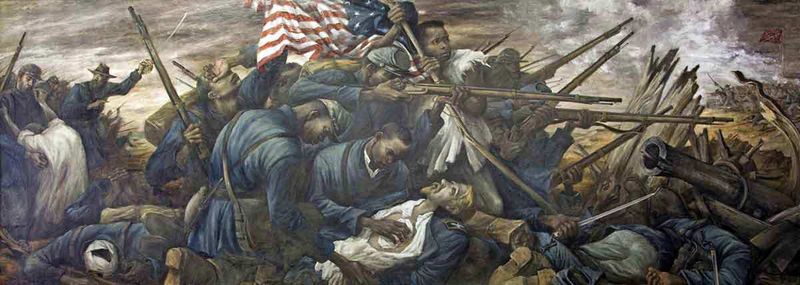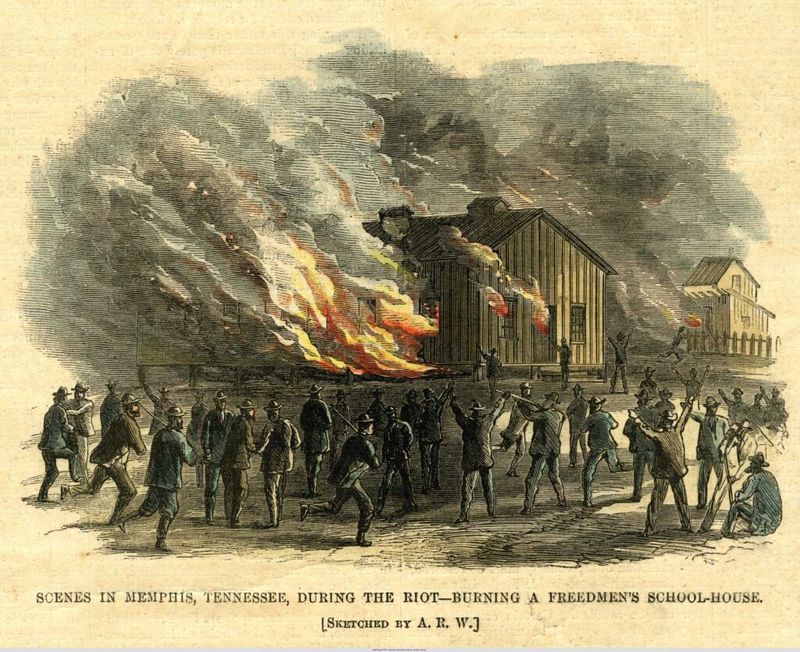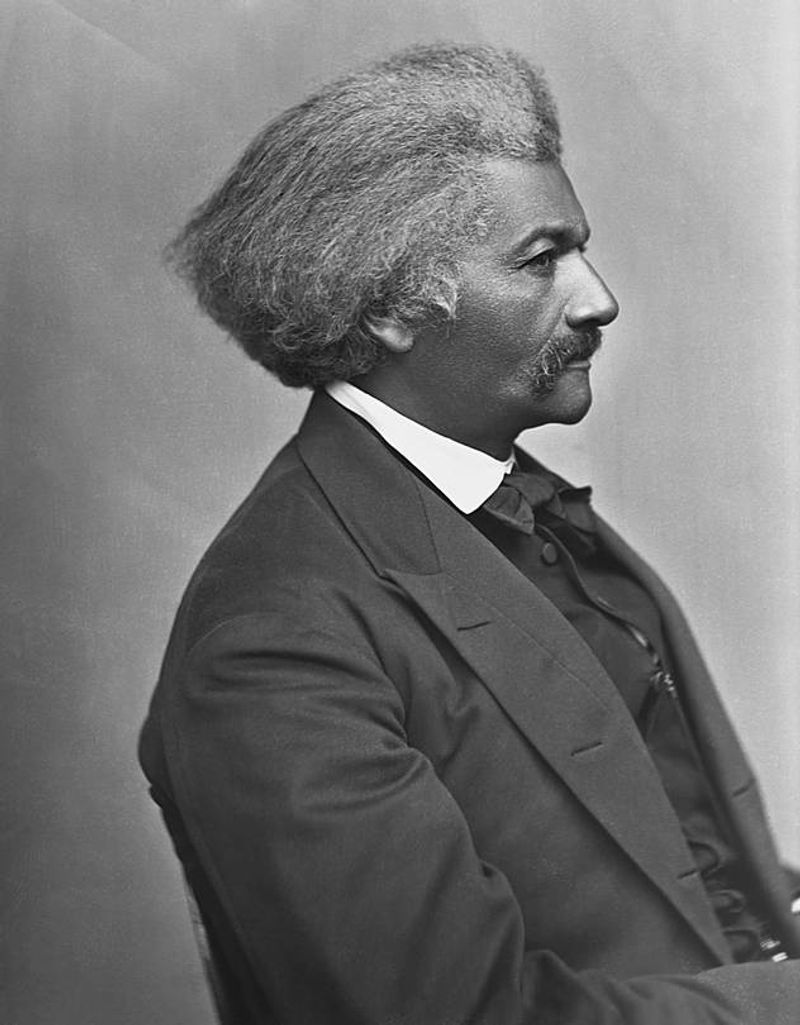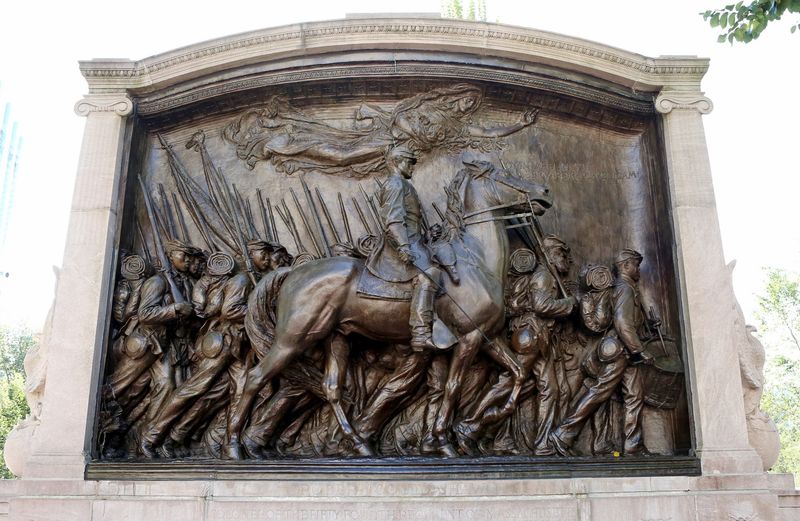Frederick Douglass, an escaped slave who became one of America’s greatest voices for freedom, fought hard to let Black men join the Union Army during the Civil War. He knew that Black soldiers would change America forever. Douglass believed that freedom wasn’t just given – it had to be earned on the battlefield where Black Americans could prove their worth as citizens.
1. Shattering Racist Myths About Black Courage
Racist stereotypes painted Black men as cowardly and unfit for battle. Douglass knew these lies needed to be crushed with real examples of Black bravery.
He argued that facing Confederate bullets would silence those who claimed Black men lacked courage. The battlefield would become a testing ground where prejudice could be defeated through action rather than words.
When Black soldiers fought valiantly at Fort Wagner and other battles, their blood washed away centuries of lies about Black inferiority. Their courage under fire spoke louder than any speech Douglass could deliver.
2. Weakening the Confederacy From Within
Every enslaved man who escaped to join the Union Army created a double benefit. The South lost a worker while the North gained a soldier.
Douglass recognized this powerful math. He saw how Black enlistment could drain the Confederate war machine of its fuel – forced labor. Plantation owners suddenly faced empty fields as those they had enslaved fled toward Union lines.
The sight of armed Black regiments marching South struck fear into Confederate hearts. White Southerners realized their worst nightmare: the very people they had oppressed were now returning as liberators with rifles in hand.
3. Freedom Through Direct Action
“Who would be free themselves must strike the blow” became Douglass’s rallying cry. He believed freedom wasn’t a gift to be handed down but a right to be seized through action.
Waiting for white politicians to end slavery seemed foolish to Douglass. He had escaped bondage himself and knew liberation required courage and sacrifice. Black soldiers taking up arms represented the ultimate form of self-liberation.
When the 54th Massachusetts charged Fort Wagner in 1863, they weren’t just attacking Confederate positions – they were storming the walls of slavery itself. Their courage transformed them from objects of history into its makers.
4. Earning the Rights of Citizenship
Before the Civil War, even free Black Americans lacked basic rights. Douglass brilliantly connected military service with citizenship claims that would be impossible to deny.
How could America refuse voting rights to men who had bled for the nation? The uniform represented more than a military role – it was a powerful symbol of belonging. Douglass knew that sacrifice on the battlefield created a moral debt that would strengthen demands for equality after the war.
“Once let the black man get upon his person the brass letters U.S.,” Douglass declared, “and there is no power on earth which can deny that he has earned the right to citizenship.”
5. Pushing Lincoln Toward Full Emancipation
Lincoln initially fought only to preserve the Union, not to end slavery. Douglass’s persistent campaign for Black enlistment helped force the president’s hand toward greater freedom.
As the war dragged on, Lincoln needed more soldiers. This military necessity created the perfect opening for Douglass to demand freedom in exchange for service. Their famous White House meetings showed how Douglass used every tool available to advance liberation.
The Emancipation Proclamation of 1863 finally authorized Black recruitment. This crucial turning point transformed the war from a fight merely to restore the Union into a battle for human freedom.
6. Rejecting Deportation Schemes
Many white leaders, including Lincoln himself, once supported sending freed Black people to colonies in Africa or the Caribbean. They couldn’t imagine a multiracial America.
Douglass fiercely opposed these deportation plans. He saw military service as proof that Black Americans belonged on the soil where their ancestors had toiled for generations. Their blood and sweat had built the nation.
When Black soldiers died wrapped in the American flag, it became harder to claim they didn’t belong in America. Their sacrifice created roots too deep to be uprooted by racist colonization schemes masquerading as humanitarian concern.
7. Opening Economic Doorways
Military service offered something rare for Black men – a steady paycheck. Though initially paid less than white soldiers, the principle of earned wages represented a revolutionary change.
Douglass recognized that economic independence would be crucial after slavery ended. Soldiers learned skills, developed discipline, and created networks that would help them navigate freedom. Many saved their military pay to purchase land or start businesses after the war.
The Freedmen’s Bank, which Douglass later led, was partly built on the savings of Black soldiers. Their military service thus created both immediate economic benefits and long-term financial foundations for Black communities.
8. Sparking Rebellion Behind Enemy Lines
Black Union regiments marching through Southern territory created a powerful psychological effect. Enslaved people suddenly saw armed, uniformed men who looked like them representing federal authority.
Douglass understood this visual power. He predicted that Black troops would inspire mass escapes and rebellions that would cripple the Confederate war effort. Plantation owners lived in constant fear as Union armies approached with Black soldiers in their ranks.
When the 1st South Carolina Volunteers – an early Black regiment – raided coastal plantations, they freed hundreds of enslaved people. Word spread quickly through slave quarters across the South: freedom was marching toward them in the form of Black men in blue uniforms.
9. Confronting Northern Racism
Even in the North, Black Americans faced harsh discrimination. They couldn’t eat in certain restaurants, ride in first-class train cars, or live in many neighborhoods.
Douglass cleverly used military service to challenge this hypocrisy. How could Northern whites justify segregating the very men who fought to save the Union? Black veterans returning home with uniforms and medals forced Northern communities to confront their own prejudices.
When white crowds cheered returning Black regiments in Boston and New York, it marked small but significant shifts in racial attitudes. Military heroism made it harder to maintain the fiction that Black Americans were somehow less patriotic or deserving of respect.
10. Securing a Voice in Reconstruction
Douglass looked beyond the war to the crucial rebuilding period that would follow. He feared that without Black participation in victory, white leaders would reshape the South without Black input.
Military service created a generation of leaders who could speak with authority during Reconstruction. Veterans like Martin Delany became political organizers, while others won election to state legislatures and even Congress. Their wartime sacrifice gave moral weight to demands for land, education, and voting rights.
When former Black soldiers organized politically in the postwar South, they could point to their military records as proof of their stake in America’s future. Their service became a powerful bargaining chip in the struggle for equality.
11. Preventing Renewed Enslavement
Douglass feared that without Union victory, slavery might expand rather than end. Confederate leaders had openly discussed conquering Cuba and parts of Latin America to create new slave territories.
Black military service helped ensure Union victory and permanently crushed these expansionist dreams. The 180,000 Black soldiers who fought for the Union represented the margin of victory in many battles. Their contributions ensured that slavery would end rather than grow.
Had the Confederacy won, even free Black people in the North might have faced kidnapping and enslavement under fugitive slave laws. By helping defeat the Confederacy, Black soldiers protected not just the enslaved but all Black Americans from potential re-enslavement.
12. Demonstrating Unquestionable Patriotism
Some white Americans questioned whether Black people felt loyal to a nation that had enslaved them. Douglass recognized that military service would answer this question definitively.
Black soldiers often faced especially dangerous assignments and Confederate threats of execution if captured. Yet they volunteered by the thousands and fought with remarkable dedication. Their willingness to die for a country that hadn’t fully accepted them represented extraordinary patriotism.
When the 54th Massachusetts lost nearly half its men attacking Fort Wagner, their sacrifice silenced questions about Black loyalty. As Douglass noted, their blood mingled with that of white soldiers in common sacrifice for the Union cause.
13. Gaining Military Skills for Self-Defense
Douglass foresaw that the postwar South would be dangerous for freed people. White resistance to Black freedom would turn violent without federal protection.
Military service taught Black men how to use weapons, maintain discipline, and organize for collective action. These skills proved crucial when groups like the Ku Klux Klan began terrorizing Black communities after the war. In many Southern towns, Black veterans formed the backbone of community defense efforts.
When night riders threatened a Black settlement in Mississippi, they found themselves facing organized resistance from former soldiers who had fought at Vicksburg and Port Hudson. The military training received during the war helped some Black communities survive the violent backlash against their freedom.
14. Creating a Moral Debt to Black America
After centuries of unpaid labor, Douglass believed America owed a massive debt to Black people. Military service made this moral ledger impossible to ignore.
Every Black soldier who died for the Union created an obligation that couldn’t be easily dismissed. Their sacrifice strengthened moral arguments for land redistribution, education funding, and civil rights protections after the war. Douglass skillfully used these sacrifices in his postwar advocacy.
“When you turned and slapped us in the face… and told us to protect ourselves… we answered your call,” Douglass reminded white audiences after the war. This moral claim – that Black blood purchased freedom – became central to Reconstruction-era demands for justice.
15. Writing Black Americans Into History
Douglass understood something profound about American memory: those who fight wars help write the history that follows. Without Black military participation, white Americans might have erased Black contributions entirely.
The visible courage of Black regiments created stories too powerful to be forgotten. Monuments, memorials, and veterans’ organizations helped preserve their legacy. When the famous Shaw Memorial was unveiled in Boston in 1897, it cemented the 54th Massachusetts in national memory.
Douglass wanted future generations to know that freedom wasn’t gifted to Black Americans – it was seized through blood and sacrifice. The historical record of 180,000 Black Union soldiers ensured that this truth couldn’t be entirely erased, even during the darkest days of Jim Crow.
